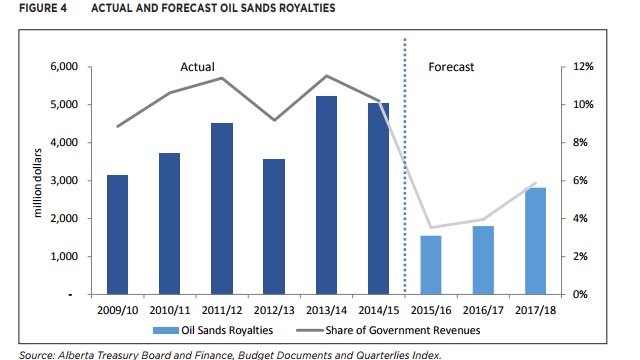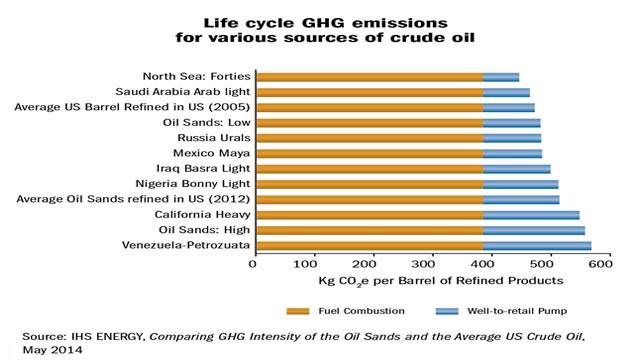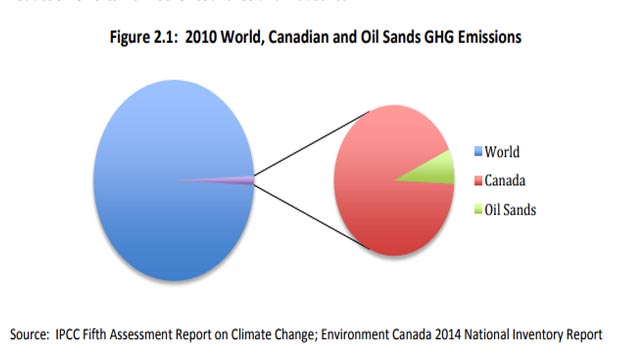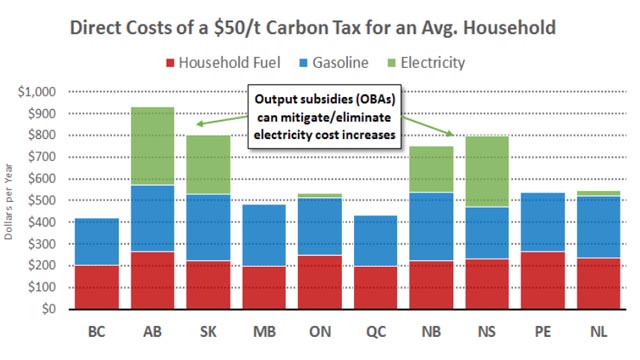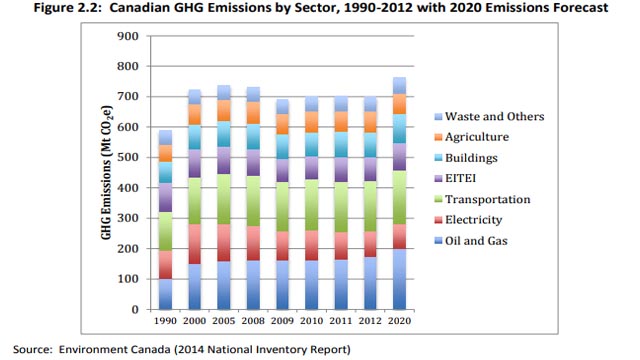CMHC still bracing for impact of COVID-19 on housing market (
CBC - CP) - Risk Management Issues
The housing market will have to reckon with significant short-term uncertainty, as well as falling housing demand from weaker household incomes in the medium term, the Crown corporation said on Friday.
Canada’s bank regulator rolling back loan deferral programs for banks, insurers (
G&M - Mark Rendell) - Evolving Legislative/Regulatory Issues
Canada’s banking regulator is rolling back two emergency programs introduced at the beginning of the pandemic, including a crucial measure that made it easier for banks to offer loan payment deferrals to clients.
US Real Estate Sales Have Been Booming Since The Pandemic. Over Half Regret Buying (
Better Dwelling - Daniel Wong) - Attitude and Preference Issues
American real estate buyers are regretting the decision to jump into the market during a pandemic. LendEdu, a US rate comparison site, surveyed homeowners that bought after March. The survey found a significant number of happy homeowners, taking advantage of record low rates. However, the majority of buyers have regrets about pulling the trigger on their new home purchase. Home-building industry pushes for renovation tax credit to dampen impact of COVID-19 (
G&M - Merideth Wilson-Smith) - Evolving Legislative/Regulatory Issues
As the COVID-19 pandemic continues to dampen economic activity across Canada, building supply and home builders’ organizations are advocating for a potential solution: home renovation tax credits. Member associations of the Building Materials Council of Canada, each representing different regions of the country, have been lobbying the federal and some provincial governments to instate a home renovation tax credit similar to the 2009 tax credit implemented by the Harper government.
Bank Of Canada’s Worst Case Scenario Is Here, Except For A 40% Drop In House Prices (
Better Dwelling - Stephen Punwasi) - Risk Management Issues
In the BoC’s adverse scenario outlined in 2019, Canada’s GDP took a large hit, unemployment spiked, and house prices tanked. The scenario sees Canada’s GDP dropping 8.2%, unemployment peaking at 12.6%, and house prices dropping 40.9%. They also assume a duration of 7 consecutive quarters. This scenario is much worse than any other previous scenarios Canada has seen. In fact, they’re testing for what seemed like a near doomsday scenario.
It’s tempting to lock in a fixed-rate mortgage right now, but make sure you know the trade-offs (
G&M - Craig Wong) - Financial Services Industry Structural Issues
As fixed-rate mortgage rate offerings tumble, those with variable loans thinking about switching over and locking in need to consider more than just the rate, experts say.
Toronto home prices soar to record highs in August (
G&M - Rachelle Younglai) - Risk Management Issues
Toronto’s housing market hit new record highs in August, with sales and prices spiking, as low mortgage rates fuelled competition for homes despite economic uncertainty brought on by the novel coronavirus pandemic.
Canadian Households Have Begun Deleveraging Loans Secured By Real Estate (
Better Dwelling - Daniel Wong) - Financial Services Industry Structural Issues
The total of loans secured by residential real estate is slipping from all-time highs. The total outstanding balance is $304.95 billion in June, down 0.27% from the month before. The drop works out to a 0.90% decline from the same month last year. June marks the third consecutive monthly decline, and the lowest 12-month growth since 2016. Breaking this down, personal loans are where the majority of the weakness is.
Toronto Real Estate Prices Rip Higher, As Inventory In The City Keeps Piling Up (
G&M - Kaitlin Last) - Attitude and Preference Issues
The price of a home in Greater Toronto is up significantly, especially the suburbs. The benchmark price across TRREB reached $890,400 in August, up 11.09% from the same month last year. The City of Toronto benchmark is now $971,800, up 9.34% from last year. Since TRREB is growing faster than the City, this means home prices in the 905 are moving even faster.
Covid-19 altering Canadians’ housing needs: RBC (
Investment Executive - James Langton) - Financial Services Industry Structural Issues
“But the bigger story might be that Covid-19 is now prompting more people to sell,” the report said, noting that new listings surged in urban centres such as Toronto, Ottawa and Vancouver.
VersaBank Adds Simply Group Financial As Point-Of-Sale Partner With Initial Financing Of $72 Million (
VersaBank - Press Release) - Competitive Issues
VersaBank (“VersaBank” or the “Bank”) (TSX: VB) today announced that it has partnered with Simply Group Financial Corp. (“Simply Group Financial”) for its Point-of-Sale Financing business. Simply Group Financial is a subsidiary of Simply Green Home Services Inc., parent corporation of the “Simply Group”, one of Canada’s fastest growing home energy solution, home improvement and consumer lending businesses. As partners, VersaBank will provide Simply Financial with financing to facilitate ongoing loan origination utilizing VersaBank’s proprietary software solution. In their first transaction, VersaBank has initially provided Simply Group Financial with a financing facility of $72 million.
Canada’s Big Six Banks Report Over 500,000 Mortgages On Payment Deferral (
Better Dwelling - Better Dwelling) - Risk Management Issues
Canadian banks are starting to see mortgage payment deferrals expire, and households resume payments. Canada’s Big Six banks reported Q3 earnings last week, which ended on July 31, 2020. Mortgages on payment deferrals have dropped by nearly a fifth in the latest quarter. While that doesn’t tell us how many people actually needed the deferral, it does bring the market closer to finding how many do.
Rental demand takes another hit as many students stay home (
G&M - Matt Lundy) - Attitude and Preference Issues
Rental housing markets across Canada are seeing weaker demand this fall as some postsecondary students pivot to online learning and stay in their hometowns, resulting in a spate of empty bedrooms and mounting losses for landlords.
New home construction picked up the pace in August as builders started up again Social Sharing (
CBC - ANITA BALAKRISHNAN) - Financial Services Industry Structural Issues
Builders broke ground on more new homes in August amid a surge in construction on apartments, condos and other types of multiple-unit housing projects in urban centres.
Fortress to pay $250,000 to settle with Ontario mortgage regulator (
G&M - Mark Rendell) - Evolving Legislative/Regulatory Issues
Fortress Real Developments Inc. has agreed to pay $250,000 for violating Ontario mortgage rules in the first direct penalty against the troubled construction finance company.
Concerns about taxes on homes may be warranted (
G&M - Tim Cestnick) - Public Policy Issues
If you’ve been following the news lately, it will come as no surprise that there have been numerous writers raising the possibility of a tax on the principal residences of Canadians. It seems to have started with a report that Canada Mortgage and Housing Corp. has provided a $250,000 grant to researchers at the University of British Columbia, where the focus is on housing wealth and inequality, according to the CMHC. The project is considered the first one sponsored by the Crown corporation as part of the Liberal government’s National Housing Strategy.
Canadian mortgage debt growth climbs to 3-year high in May as payments deferred (
G&M - Reuters) - Financial Services Industry Structural Issues
Canadian mortgage debt rose in May at the fastest annual rate in three years, boosted by a jump in property sales and record levels of mortgage payment deferrals due to the coronavirus pandemic, data from the national housing agency showed.
Mortgage delinquencies expected to jump in latter part of the year, CMHC says (
G&M - Rachelle Younglai) - Risk Management Issues
As of July 31, banks had provided mortgage deferrals of up to six months to more than 775,000 homeowners. That represents about 16 per cent of the banks' residential mortgage portfolios, up from 10 per cent in April, according to their industry group, the Canadian Bankers Association.
Housing starts hit 13-year high, rising 7 per cent in August, CMHC data show (
G&M - Rachelle Younglai) - Financial Services Industry Structural Issues
National housing starts rose 7 per cent in August compared with July, to a seasonally adjusted annual rate of 262,396, according to the Canada Mortgage and Housing Corp. That was the highest level since September, 2007, and another month that bucked the agency’s forecast for a precipitous drop this year.
The ‘supply crisis’ in Canada’s housing market isn’t backed up by the evidence (
G&M - Josh Gordon) - Financial Services Industry Structural Issues
If you follow the housing debates in Toronto and Vancouver, you’ll have undoubtedly heard the claim that the affordability challenges facing both cities are the result of supply problems. Common complaints include a lack of new housing, burdensome regulation and flawed zoning.
New Home Construction in Canada Hits Its Highest Since 2007 (
Bloomberg - Theophilos Argitis) - Financial Services Industry Structural Issues
Housing starts surged to 262,396 units in August on an annualized basis, up 6.9% from an already elevated 245,425 units a month earlier, Canada Mortgage and Housing Corp. said Wednesday in Ottawa. The highest monthly total since September 2007 was powered by new construction in Toronto and Vancouver, particularly multiple units like condos.
Canadian homes sales jumped in August, prices continue to climb (
G&M - Rachelle Younglai) - Competitive Issues
Canadian home sales and prices hit record highs in August, as low borrowing costs and an easing of pandemic restrictions continued to fuel housing demand.
Average Canadian house price soared 18% in past year, CREA says (
CBC - Pete Evans) - Financial Services Industry Structural Issues
Canada's housing market continued its improbable run in August, as average prices jumped by almost 20 per cent from where they were a year earlier, and the number of homes sold shattered the monthly record.
Canadian Immigration Resumes Big Declines, As Permanent Resident Numbers Plummet (
Better Dwelling - Stephen Punwasi) - Financial Services Industry Structural Issues
Permanent residents arriving in Canada are back to making steep declines. There were 13,645 permanent residents admitted in July, down 60.29% from the same month a year before. Year-to-date the country has seen 220,500 people admitted, down 38.25% compared to the same period last year. June showed improvements in the trend, but those rolled back in the latest numbers.
Canadian Seniors Have Racked Up Over $4.3 Billion In Reverse Mortgage Debt (
Better Dwelling - Daniel Wong) - Financial Services Industry Structural Issues
Canadian seniors are hammering away at their home equity at a very fast pace. Reverse mortgage debt reached $4.30 billion in July, up 0.62% from the month before. This represents an increase of 13.63% when compared to the same month last year. Yes, that’s huge growth and a new record all-time high.
Rents in Canada’s two most expensive cities are dropping at record rates (
FP - Pamela Heaven) - Competitive Issues
With immigration stalled during the COVID-19 pandemic, rental markets in some of Canada’s biggest and most expensive cities have seen record declines.
Equitable Bank Completes $200 Million Deposit Note Issue (
Equitable - Press Release) - Competitive Issues
The Deposit Note was priced at 150 basis points over comparable term Government of Canada bonds, and will carry a coupon of 1.774%. The bond was supported by a broad investor base expressing record interest in the purchase of Equitable Bank deposit notes. The Deposit Note ranks equally and ratably with all present and future unsecured and unsubordinated liabilities of the Bank. It is not eligible for Canada Deposit Insurance Corporation insurance.
New home prices see biggest monthly jump in 3 years as lumber prices soar (
CBC - CBC) - Competitive Issues
The data agency says homebuilders expect the record high lumber prices this year will most likely add an extra $5,000 to $10,000 to the cost of a single family house.
Canada’s Largest Real Estate Markets See Permanent Resident Declines Accelerate (
Better Dwelling - Stephen Punwasi) - Financial Services Industry Structural Issues
The number of permanent residents admitted to Toronto is seeing declines become larger. There were 4,450 permanent residents admitted in July, down 64.0% from the same month last year. Year-to-date there were 69,825 people admitted, down 40.82% compared to the same period last year. July’s decline is almost 50% larger than June, so the declines are getting much larger. The year-to-date rate of decline is also smaller, confirming July’s acceleration. The drops aren’t getting better, they’re getting worse.
Housing Agency Stands by Forecast for Sharp Price Drop in Canada (
Bloomberg - Shelly Hagan) - Risk Management Issues
Canada’s federal housing agency is sticking to its pessimistic forecast for the future of the country’s housing market, citing “tremendous” risks from the Covid-19 pandemic.
Canada Mortgage and Housing Corp. forecast in May that average prices would fall between 9% and 18% from pre-pandemic levels before beginning to recover in the first half of 2021. Chief Economist Bob Dugan reiterated that forecast, though he cautioned that it’s difficult to predict the “peaks and troughs” and there are many moving parts.
“When I say I stand by our forecasts, it’s really with respect to what are the broad trends we expect moving forward,” Dugan said Monday on a conference call with reporters. “When I look at the housing market there are a tremendous number of risks.”
Canada’s housing market has not only defied expectations of a slowdown, it’s booming, even as the economy suffers from the deepest downturn since the Great Depression.
Demand for homes combined with tight inventory levels and historically low interest rates are driving gains.
Nearly Half Of Canadian Real Estate Markets Have “Moderate” Vulnerability (
Better Dwelling - Daniel Wong) - Risk Management Issues
Canadian real estate has a moderate level of vulnerability. There are now 7 major markets displaying a moderate level of vulnerability. This is up from 5 during the February report. New markets to join these ranks are Moncton, Halifax, and Ottawa. The only market to see the rating lower back to a “low” degree of vulnerability is Regina.
Moody’s Doubles Down On Forecast Of Canadian Real Estate Prices Falling Soon (
Better Dwelling - Stephen Punwasi) - Attitude and Preference Issues
Moody’s previous forecast didn’t expect the market to show signs of weakness until Q3, and they’re doubling down. The report’s economist expects stimulus, mortgage deferrals, and interest rates to contain damage until Q3. They expect by Q3, the optimism of those programs will begin to wear thin. The reality of how meaningful the improvements are, should be apparent by then. The optimism should then fade. It’s at this point they believe prices can no longer defy employment, vacancy, and delinquency rates. Canadian Condo Prices Peaked In April, Only Three Major Markets Now At Peak (
Daniel Wong) - Financial Services Industry Structural Issues
The price of a typical condo apartment across Canada, peaked right after the pandemic broke out. The aggregate benchmark reached $478,700 in August, up 6.45% from last year. This number is down about $700, or 0.15%, from the all-time record high reached in April 2020. As you might expect, not everywhere moved in the same direction. Three markets were able to push condo prices to a new all-time high.
Destruction of value in US real estate revealed (
FT - Joe Rennison) - Financial Services Industry Structural Issues
Commercial properties hit by the economic effects of coronavirus could have lost as much as one-quarter of their value or more, laying bare the scale of the damage being wrought across American malls, hotels and other commercial buildings.
Optimism About Canadian Housing Market Climbs Even Amid 2nd Wave (
Bloomberg - Shelly Hagan) - Attitude and Preference Issues
The residential real estate market has been a bright spot in Canada’s economic recovery from Covid-19. Last month, home prices and sales reached a record from pent-up demand combined with low interest rates and tight inventory. Although the market has defied expectations, economists predict the gains will peter out in line with other data that shows a slow down in activity as cases rise and restrictions get re-imposed.
Canadian Mortgage Credit Growth Finally Falls To Pre-Pandemic Levels (
Better Dwelling - Daniel Wong) - Financial Services Industry Structural Issues
Canadian mortgage debt is slowing in growth, after a surge at the beginning of the pandemic. Bank of Canada (BoC) data shows outstanding mortgage credit reached a new high in August. At the beginning of the pandemic, the rate of growth had accelerated due to payment deferrals. Deferrals are beginning to expire now, sending growth back down to pre-pandemic levels. Office vacancies spike in Toronto, Vancouver as pandemic fuels work-from-home migration (
G&M - Rachelle Younglai) - Financial Services Industry Structural Issues
Vacancy rates in Canada’s tightest office markets are spiking, as employees continue to work from home and more businesses try to get rid of space amid the economic fallout from the novel coronavirus pandemic.
Canadians now have the option to build their credit scores via rent payments (
FP - Victor Ferreira) - Risk Management Issues
Eight years after Canadians first became able to use their mortgage payments to build their credit scores, a similar option now exists for those who rent.
Canadian Mortgage Debt Passes 80% Of GDP For The First Time (
Better Dwelling - Stephen Punwasi) - Financial Services Industry Structural Issues
Debt is future income used today. As debt loads get higher, more future spending is pulled forward. The higher these debt loads get, the more future growth is being used. Lower interest rates may have spurred this borrowing binge, by lowering service costs. However, as people get used to low rates (or depend on them), the stimulus effect is gone. Eventually, you’re just left with households increasingly vulnerable to shock.
Real estate site that backstops home buyers raises $100 million to expand across Canada (
FP - Colin McClelland) - Fintech and AI
A relatively new Canadian real estate agency, whose founders gained experience at Uber Inc. and Blackberry Ltd., is betting on artificial intelligence to alleviate the stress of buying a new home before selling an existing one.
Toronto is the only North American real estate market considered in bubble territory (
G&M - Rachelle Younglai) - Risk Management Issues
Toronto home prices are overvalued, making it the only North American city at high risk of being in a bubble, according to a new report on global real estate conditions by UBS.
Business owners anxious as federal rent relief program ends with no replacement (
G&M - Josh O'Kane) - Public Policy Issues
The federal government allowed its small-business pandemic rent-relief program to expire at the end of September without providing details for its long-promised replacement, leaving thousands of entrepreneurs facing full rent payments as October begins.
Canadian Population Growth Slows To Lowest Rate In Years (
Better Dwelling - Stephen Punwasi) - Financial Services Industry Structural Issues
Canada’s population slowed to a multi-year low for the rate of growth, but still made substantial gains. Stat Can estimates the population reached 38.01 million in Q3 2020, up 25,384 (0.07%) people from the previous quarter. Compared to last year, this works out to an increase of 411,854 (1.10%) people. Extremely slow quarter, but it gives an idea of how quickly the population was growing before the pandemic.
The Great Rethink: Why the idea that everyone deserves to own a home is fundamentally flawed (
FP - Barbara Shecter) - Attitude and Preference Issues
Real estate had grown to represent about 15 per cent of gross domestic product, compared with about 11 per cent 2007, according to Statistics Canada data. Siddall then delivered another jolt: he called on legislators to resist the urge to respond with new policies that would make it easier for Canadians to purchase homes.
Toronto Condo Rental Inventory Is Soaring, And It Might Be Driving People To Sell (
Better Dwelling - Stephen Punwasi) - Financial Services Industry Structural Issues
Toronto condo apartments for rent are swelling to an unusually high level for this time of year. There were 7,901 units for lease in September, up 96.4% from the same month last year. This is the biggest September for rental inventory in at least half a decade. As for bigger months, only July and August have had more, over the same time period.
America’s Next Housing Crisis: How The Pandemic Is Pushing Renters To The Brink (
Forbes - Sam Chandan) - Risk Management Issues
For millions of America’s renting families, threats to housing security are a persistent fact of life, even at the best of times for the broader economy. A significant unplanned expense or a temporary interruption to employment can mean the difference between a rent payment made and a payment missed. The relative health of the labor market proves crucial in maintaining a measure of housing stability in the United States.
What Will The Pandemic’s Impact Be On The Real Estate Market? (
Forbes - Keneth Rapoza) - Financial Services Industry Structural Issues
The pandemic has already caused a mini-exodus out of New York City, and with lower taxes, lower interest rates, and — for the wealthiest among us — higher earnings thanks to stock market gains and some helpful bailouts, the housing market is roaring outside of urban America.
Former SoFi CEO Cagney Sells Biggest Heloc-Backed Bond in Decade (
Bloomberg - Adam Tempkin) - Financial Services Industry Structural Issues
Mike Cagney’s blockchain lending startup Figure Technologies has provided collateral for the biggest bond backed by home equity lines of credit since the American housing collapse over a decade ago.
US banks signal mounting concern over real estate lending (
FT - Robert Armstrong) - Risk Management Issues
US banks are increasingly worried about being repaid on loans secured against commercial property, as offices, malls and hotels continue to stand empty.
One of Finance’s Few Black CEOs Thrives Where Big Banks Fled (
Bloomberg - Jeff Green and Peter Robison) - Governance
Darrin Williams thinks it was probably a Fox News interview he did in early April that caught the eye of the White House and got him invited later that month to a videoconference with President Trump, his daughter Ivanka, and other top advisers. The pandemic was raging, and Trump had convened a lineup of financial luminaries to discuss how to save the economy. Treasury Secretary Steven Mnuchin took notes as Brian Moynihan, chief executive officer of Bank of America Corp., and Goldman Sachs Group Inc. CEO David Solomon opened the conversation. Then came Williams, who runs Southern Bancorp Inc. in Little Rock.
A Neighborhood’s Race Affects Home Values More Now Than in 1980 (
Bloomberg - Brentin Mock) - Industry Conduct and Practices Issues
In other words, if an appraiser is calculating the value of a home in a Black neighborhood by comparing it to houses recently sold around it, then chances are she is comparing it to other Black-owned houses that, because of the legacy of segregation, have handicapped values in the market compared to similar homes in white communities appraised at higher prices.
UK retailers pay just 13% of latest rent bill (
FT - George Hammond and Alice Hancock) - Risk Management Issues
Retailers have paid only a fraction of the rent they owe for the latest quarter, as UK high streets come under growing pressure in the face of tightening coronavirus restrictions.
China Can't Afford to Let Property Crash (
Bloomberg - Nisha Gopalan) - Risk Management Issues
As China’s economy picks up after the pandemic, the last thing you might expect is a renewed credit squeeze in the real estate industry. So the imposition of leverage thresholds for developers has come as a surprise, weighing on shares of highly indebted companies from China Evergrande Group to Greenland Holdings Corp. The concerns may be overstated.

